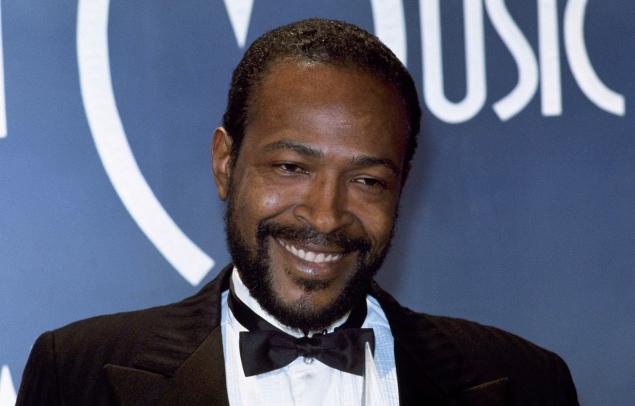By Wanjiku Karanja

A California federal jury on the 10th of March 2015 awarded $7.3 million in damages to soul singer Marvin Gaye’s estate, in a copyright infringement suit, in which the former had alleged that performers: Robin Thicke, Pharrell Williams and Clifford Harris Jr. (T.I.), had plagiarised Gaye’s 1977 song “Got to Give it Up” to create their massive hit: “Blurred Lines”.
This is the highest award in a music copyright infringement suit since the 1994 $5.4 million judgment against Michael Bolton for using elements of the Isley Brother’s song “Love is a Wonderful Thing” in his song also titled “Love is a Wonderful Thing”.
After the announcement of the verdict, Thicke, Williams and T.I. in a joint statement said that:
“While we respect the judicial process, we are extremely disappointed in the ruling made today, which sets a horrible precedent for music and creativity going forward. ‘Blurred Lines’ was created from the heart and minds of Pharrell, Robin and T.I. and not taken from anyone or anywhere else….”
This legal drama begun in August 2013 when Robin Thicke, Pharrell Williams and Clifford Harris Jr. (T.I.) pre-emptively sued “Funkadelic” and Marvin Gaye’s estate, seeking to establish their copyright over “Blurred Lines”. They alleged that the Gaye’s estate did not have an interest in the copyright to the composition of “Got to give it up” sufficient enough to establish a cause of action for copyright infringement. They further claimed that while “Blurred Lines” “sounds” the same as “Got to give it up”, their intention had been to evoke a “feeling” of the era in which the latter had been created. They however, failed to obtain a summary judgement and the case proceeded to trial.
On the eve of the trial, Williams and Thicke sought to bar the playing of the “Got to give it up” sound recording during the trial after a revelation that the Gaye estate had failed to properly licence the song’s sound recording under the 1909 Copyright Act. The Gaye family however argued that the composition was embodied in the recording and as such their copyright applied to both the song’s composition and recording.
The court upheld the plaintiffs’ position, stating that Gaye’s copyright to the song was limited to its sheet music composition and as such any comparison between the two songs would be made on the basis of their fundamental chords, melodies and lyrics. Stripped down versions of both songs were however later played during the trial. This ruling is an expression of the fact that songs often embody multiple separate copyrights in: the composition, lyrics and sound recording.

The jury in their verdict, which was reached after 8 days of trial, found Thicke and Williams liable for infringement of the musical copyright of “Got to Give it Up” and ordered that they pay $1.8 and $1.6 million respectively in damages. Although the jury awarded $7.3 million in damages and $9000 in statutory damages to the defendants, the Gaye family must chose one kind of damages or other, they cannot collect both.
Accusations of plagiarism are common in the music industry but it is very rare for a case to progress to the level of a jury verdict, much less obtain such a large damages award. The reason for this is that artists often prefer settling such claims out of court rather than subjecting themselves to a tenuous, embarrassing trial and an unpredictable jury. This case, having done both, has resonated throughout the music industry as it raises an interesting question as to the distinction between “playing homage” to a particular “sound” or “era” and plagiarism.
Copyright infringement occurs when a person, without licence of the copyright owner, reproduces a substantial part of the work, which, to a sufficient degree, resembles and forms a substantial part of the copyrighted work. This case however is not about sampling i.e. the reproduction of the actual sound
recording. It is about the copying of some specific elements of the composition. The Gaye estate has however failed to show that there was a substantial similarity between the compositions of the two songs.
The jury’s decision is therefore confusing as it is based on elements that are not contained in the written composition, but were later added in the sound recording, such as the background chatter and percussion.
Furthermore, the verdict ignores the scènes à faire principle of copyright law, which holds that certain elements of a genre cannot be the subject of a copyright claim as they form an essential part of that genre. The similar “walking” bass line in both songs that is typical of the “funk” genre is an example of this.
This verdict therefore calls into question the wisdom of the reliance of juries in deciding copyright cases, as the verdicts are unpredictable and more likely to be based on “emotions” rather than on the law. Robin Thicke’s admissions during the trial that he had been under the influence of drugs and alcohol during the recording and promotion of “Blurred Lines” and that he had lied about co-writing the song probably went a long way in influencing the jury’s decision.
This blogger also notes as disturbing the precedent that this verdict sets with respect to the treatment of music that is “reminiscent” of a different era. All forms of art influence each other and artists often draw their inspiration from different eras. It thus is unconscionable and damaging to creativity to label a song that evokes a “feeling” of a preceding era as copyright infringement. This legal battle is however, far from over with Gaye’s estate filing an injunction on the 17th of March 2015 to prevent the copying, distribution and performance of “Blurred Lines”. The family also sought the amendment of the verdict to include T.I., and labels Universal Music, Interscope Records and Star Trak Entertainment.
This blogger awaits the outcome of this development.